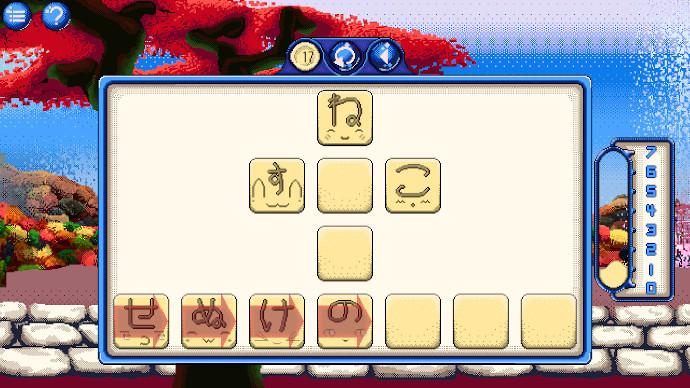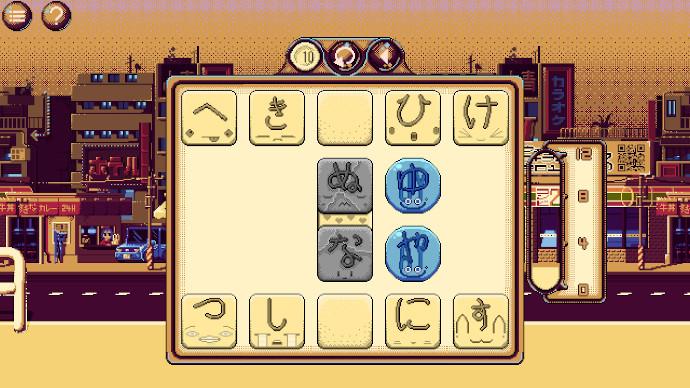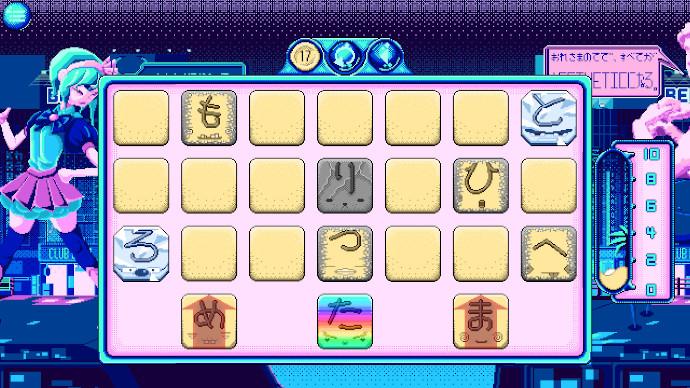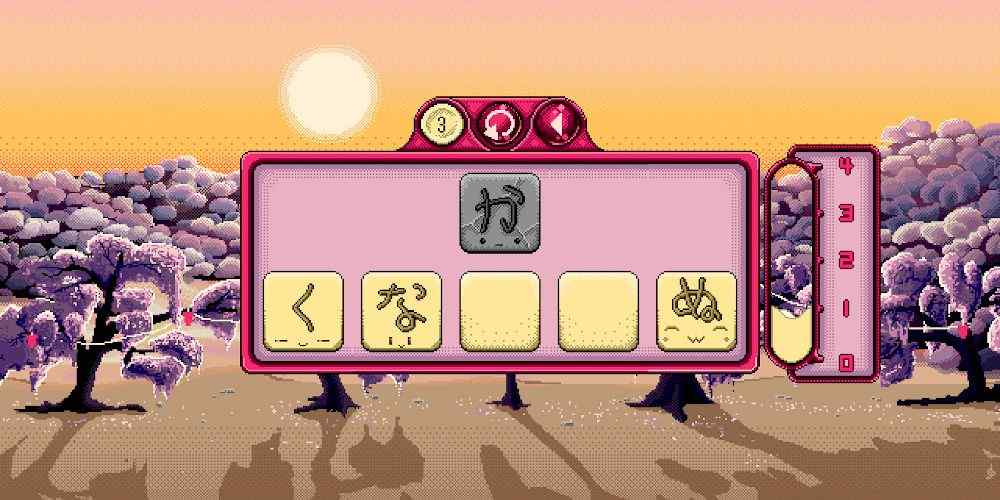I love when education can be gamified. There's a lot of rote memorization and repetition involved in the learning process that you simply can't bypass, so when those "boring" elements can be made more engaging with interesting gameplay mechanics, that's a clean win in my book.
Which is why apps like Duolingo and LingoDeer have taken off for language learning. But for a lot of people, those apps aren't gamified enough, and thus fail to keep their attention for more than a few days—and that's why games like Kana Quest, developed by Not Dead Design, are important.
Kana Quest is simple in concept: written Japanese characters (in the form of hiragana) are represented by tiles on a grid, where each written character is a single syllabic sound. When two adjacent tiles share an element of their pronunciation, they "connect"—and when you connect all the tiles on the board, you beat the level.
For example, か ("ka") connects when it's adjacent to characters like く("ku") and こ ("ko") because they share the "k" sound, but it also connects to characters like な ("na") and ら ("ra") because they share the "a" sound.
Each level begins with a "stone tile," which is predetermined, unchangeable, and unmovable. This makes it so that each level has a fixed solution given the number of regular tiles and layout of the board—there's only one way to make all tiles connect.

Not sure what a particular written character sounds like? Just double-click it and it'll flip over to show you its phonetic pronunciation. Very helpful for anyone who, like me, has absolutely zero knowledge of Japanese hiragana.
You can see how this aids in learning Japanese hiragana: as you keep playing and as you're regularly exposed to the various characters and their associated sounds, it eventually becomes second nature and you'll no longer need to flip tiles to check what they sound like.
Of course, all of this hinges on your effort and intent—if you don't actually put in the energy to associate each character with its sound, you won't get anything out of Kana Quest.

But the logic-based puzzles are fun, too. Learning the hiragana characters is just a side bonus to the actual gameplay, and the gameplay is engaging enough on its own that I'd consider it fun even if I were already fluent in hiragana.
Indeed, the logic puzzles do get complex toward the end (there are over 300 puzzles in Kana Quest), and solving them comes with its own kind of satisfaction. And they aren't the stress-you-out kind of logic puzzles, either. You can take your time, you can make as many mistakes as you want, and you can even brute-force them if you want—I wouldn't recommend it, but it's nice to know that's an option if the learning of hiragana is more important for you than the puzzle-solving.

Kana Quest will be available on March 12, 2020 on Windows, Mac, and Linux via Steam. The developers also plan to release Android and iPhone versions in the future, but no date is currently set.
